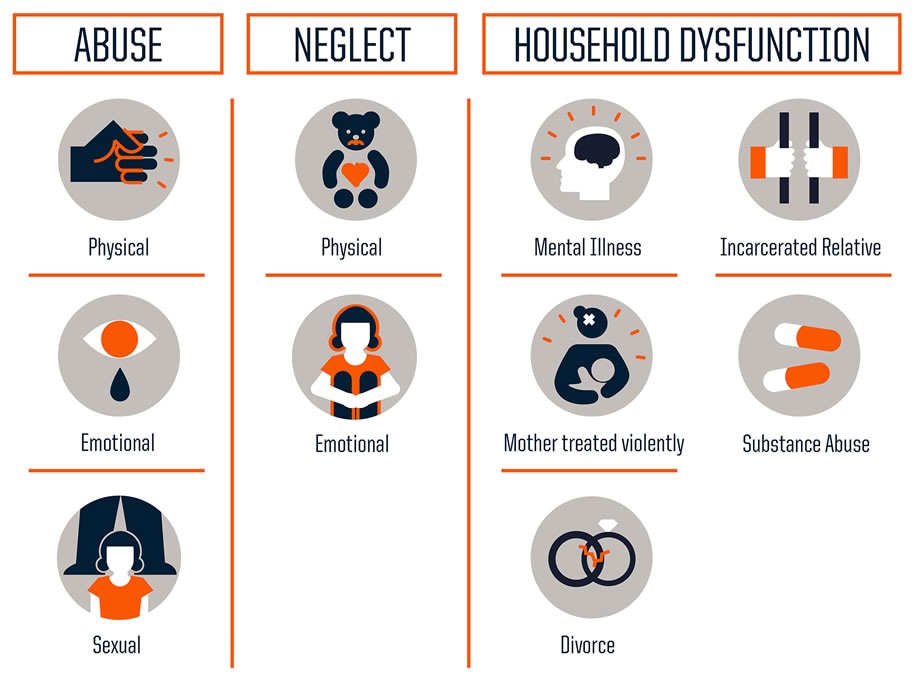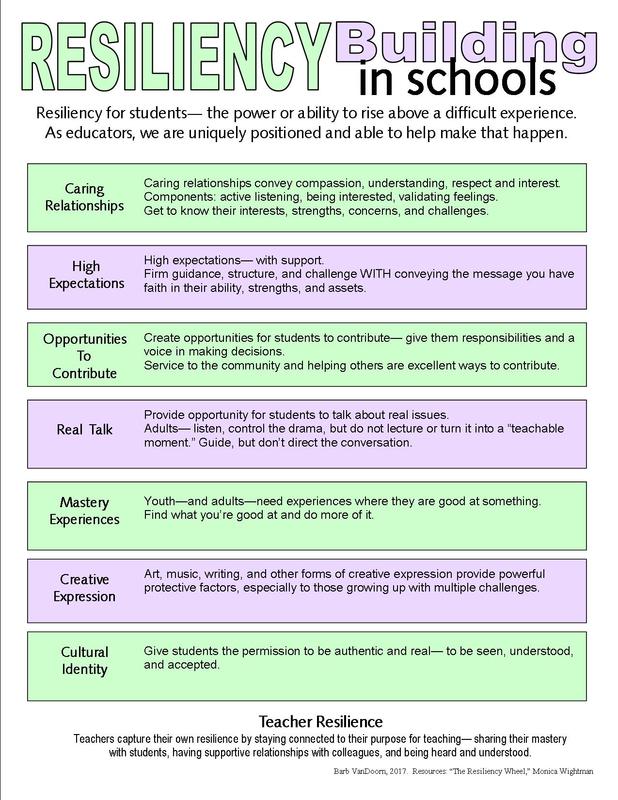Resilience and your part in making a difference
The research into ACEs is sobering. The positive-- individually you can
make a difference and you currently have the skills to make that happen.
make a difference and you currently have the skills to make that happen.
|
"Moreover, although early adversity can lead to greater vulnerability later in life, positive experiences can decrease such risk." Jack P. Shonkoff, M.D., Director, Center for the Young Mind Harvard University |
What do we know about ACEs?
Three Types of ACEs
Source: Centers for Disease Control and Prevention Credit: Robert Wood Johnson Foundation
|
We also know from the CDC study that 70% of adults in the study had one event prior to age 18, and 12% had four or more. Adverse Childhood Experiences affect a large portion of our students, regardless of their setting or zipcode. These events have an affect on development and learning, as well as life-long health implications.
An example of our ability to affect change is described in this message from Dr. Allison Jackson.
A Call to Connection
Your part in making a change
"70% of why we change a negative is because we're inspired by a person." "Relationship is the evidence based practice." "Ordinary acts can change this (ACEs)-- it's not going to be the monumental events." "Make that risk of connection." |
Running time: 10 minutes
|
Keep investing time and energy into relationships.
As educators we are uniquely poised to make a lasting impact.
As educators we are uniquely poised to make a lasting impact.

